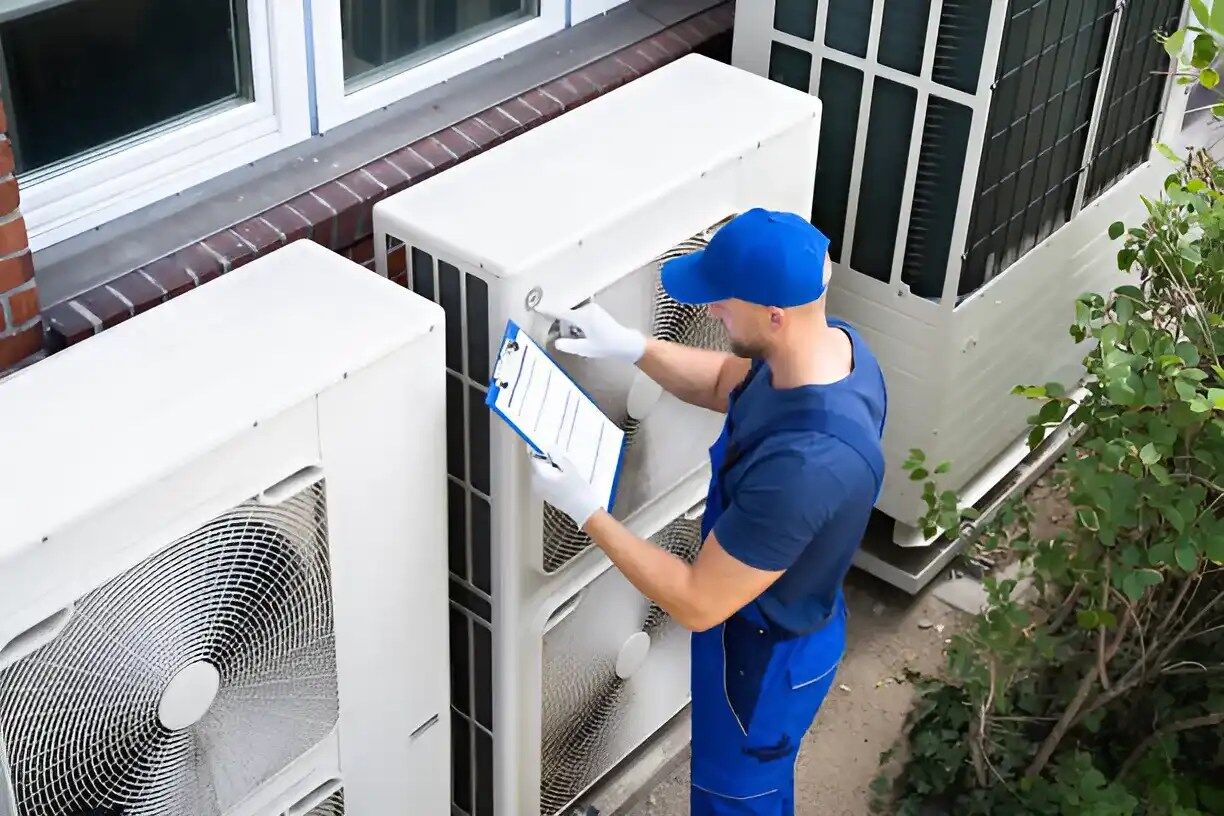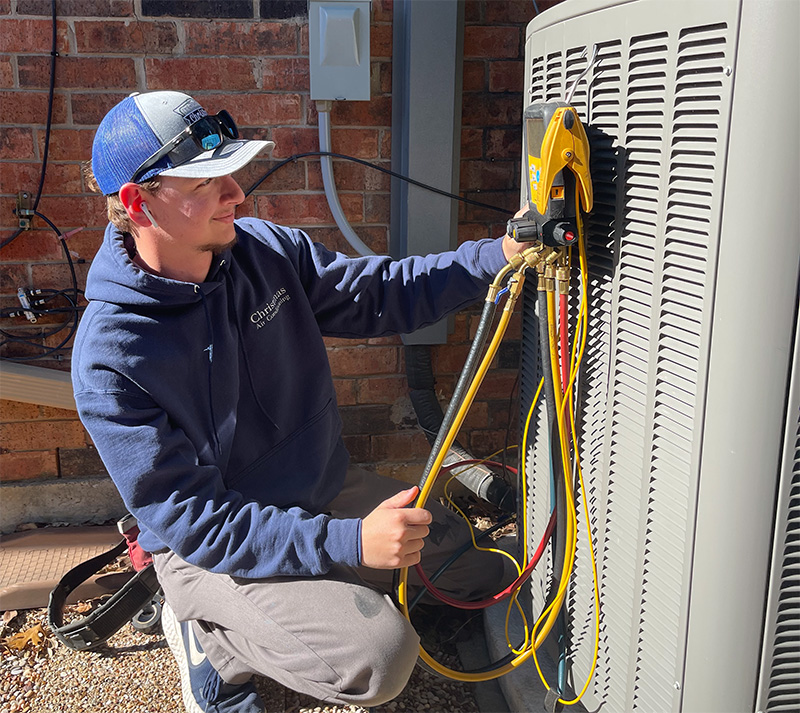The Main Principles Of Air Conditioning Repair Near Me
The Main Principles Of Air Conditioning Repair Near Me
Blog Article
The Of Ac Air Conditioner Repair
AC Repair: Expert Cooling System Remediation Ensures Your Home Stays Comfy All Year Round
Kinds Of Air Conditioning Systems
When dealing with air conditioner repair, comprehending the kind of a/c system you're dealing with can save time, cash, and stress. Ever wondered why some systems cool a room quicker than others? Or why particular systems seem to break down more regularly? Let's peel back the layers.
Central Air Conditioning
The Basic Principles Of Repair Air Conditioner Near Me
Envision a cool breeze streaming through a whole house, whispering convenience into every corner. Central air conditioning systems do precisely that. They utilize a network of ducts to distribute cooled air, relying on a compressor and condenser outside, matched with an evaporator coil inside. However when this complex monster falters, pinpointing the issue can be like finding a needle in a haystack.
Split Systems

Split systems are a popular choice for many homes-- part indoor system, part outdoor compressor. They provide versatility and effectiveness, however their dual nature suggests repair can include either element. Have you ever heard a weird sound click here outside your house only to find the indoor unit isn't cooling? That's a classic sign of a split system problem.
More About Air Conditioner Repair Near Me
Window Units
These compact warriors fight summertime heat by fitting snugly into a window frame. They combine all components into a single box. Their simpleness frequently implies fewer repair work headaches, but ignoring filters or allowing debris buildup can result in diminished performance or breakdowns.
Ductless Mini-Splits
Not known Factual Statements About Fix Air Conditioner
Ductless systems bypass ductwork completely, making them ideal for homes without existing ventilation. They're peaceful, efficient, and remarkably durable. When repair work are required, service technicians need to be skilled at dealing with refrigerant lines and electrical connections-- no little feat.
Quick Reference Table
| Type | Key Features | Common Repair Issues |
|---|---|---|
| Central air conditioning | Ductwork, whole-house cooling | Duct leakages, compressor failure |
| Split System | Indoor & & outside systems | Refrigerant leakages, fan motor issues |
| Window System | All-in-one, easy setup | Filthy filters, electrical faults |
| Ductless Mini-Split | No ducts, zoned cooling | Line leakages, sensing unit breakdowns |
6 Easy Facts About Ac Repair Described
Unraveling one of the most Frequent AC Predicaments
Have you ever questioned why your air conditioner unexpectedly stops cooling during a sweltering afternoon? One common culprit is an unclean or blocked air filter. This sly bad guy restricts airflow, requiring your system to work overtime, which not just decreases effectiveness however can also cause early breakdowns. Envision attempting to breathe through a scarf taken in dust-- it's tiring!
Another frequent hiccup is refrigerant leakages. These undetectable leaks do not simply decrease cooling power but can likewise harm the compressor, the heart of your air conditioning unit. How often do you look for unusual hissing sounds or ice development on the coils? Capturing these signs early can save you from costly repairs down the line.
Beyond the Essentials: Lesser-Known Issues
Examine This Report about Ac Air Conditioner Repair
Sometimes, the thermostat itself is the troublemaker. Miscalibrated or faulty thermostats send out blended signals, causing the AC to cycle erratically. Ever skilled your a/c turning on and off in rapid succession? That's called brief biking, a sneaky effectiveness drainer that can break elements much faster than you 'd expect.
Electrical issues, such as used circuitry or a malfunctioning capacitor, might hide beneath the surface. AC Repair. These frequently manifest as air conditioner systems stopping working to begin or unexpectedly closing down. An expert eye understands to test these elements with precision tools, something a casual glimpse won't reveal
Expert Tips for Diagnosing Common A/c Problems
The Ac Air Conditioner Repair Ideas
- Inspect and replace air filters frequently-- every 1 to 3 months depending upon usage and environment.
- Listen for uncommon noises like rattling or buzzing that might signify loose parts or electrical faults.
- Inspect the outdoor unit for particles or clogs that impede air flow and cause overheating.
- Try to find frost accumulation on evaporator coils, a hint towards refrigerant issues or airflow limitations.
- Evaluate the thermostat settings and recalibrate if the temperature level readings feel off.
Quick Referral Table: Symptoms & & Probable Triggers

| Sign | Probable Cause | Professional Suggestion |
|---|---|---|
| Warm air blowing | Low refrigerant or filthy coils | Clean coils and check for leaks right away |
| Brief biking | Thermostat concerns or extra-large system | Adjust thermostat settings and seek advice from sizing standards |
| System will not start | Electrical faults or capacitor failure | Test electrical wiring and change capacitors as needed |
| Water leak | Blocked drain line or frozen evaporator | Clear drain lines and check for coil icing |
DIY A/c Upkeep Tips
Some Known Factual Statements About Air Conditioning Repair Near Me
Ever discovered your air conditioner sputtering like an old engine on a hot summer season day? Disregarding subtle indications typically implies more than simply a sweaty afternoon-- it's a prelude to unanticipated air conditioning repair expenses. What if you could catch those whispers before they turn into wails? Regular do it yourself maintenance can be your first line of defense.
Basic Steps to Keep Your AC Running Efficiently
Getting My Ac Repair Near Me To Work
- Clean or Change Filters: A blocked filter resembles trying to breathe through a headscarf. Every 1-3 months, inspect and swap out your filters. It enhances air flow and efficiency, avoiding compressor strain.
- Examine the Condenser Coils: Dust and debris act as unnoticeable blankets smothering your system's cooling power. Gently brush or vacuum the coils, but prevent harsh chemicals that might wear down the metal.
- Inspect the Drain Line: When was the last time you glanced at your drain pan? A clogged drain can cause water leakages and foster mold development. Flushing it with a vinegar option monthly keeps the flow clear.
- Seal and Insulate: Are your ductworks whispering leaks? Sealing gaps with mastic or foil tape improves effectiveness and reduce irregular cooling.
Pro Tips Beyond the Essentials
- Step your system's voltage to catch subtle electrical wear before it sparks big issues.
- Listen for unusual hums or rattles-- these acoustic breadcrumbs often signal loose parts or failing motors.
- Keep outdoor units shaded however ensure at least two feet of clearance around them for optimum air flow.
Ask yourself: Are you hearing your air conditioner's peaceful SOS or simply waiting for it to scream? Requiring time for DO IT YOURSELF AC upkeep transforms reactive repair work into proactive care, conserving sweat, tension, and yes, cash.
The Basic Principles Of Air Conditioning Repair Near Me
Why Knowledge in A/c Repair Matters
Picture this: your a/c unit sputters and groans throughout a scorching afternoon, leaving you sweltering inside your home. Would you trust an amateur fumbling with delicate elements, or would you seek the peace of mind of a expert air conditioning professional!.?.!? The complexities of contemporary a/c systems demand accuracy and experience. A small miscalculation can intensify a small breakdown into an expensive catastrophe.
Rumored Buzz on Air Conditioner Repair Near Me
Hidden Intricacies Behind the Cool Breeze
Lots of underestimate the layers hidden beneath the sleek exterior of an AC unit - Air conditioning Repair Near Me. From refrigerant leaks that quietly drain pipes effectiveness to defective thermostats that misread temperature levels, these problems require more than a fundamental toolkit. Experts possess a keen eye for diagnosing issues that average property owners overlook
Vital Tips for Choosing the Right Professional
The smart Trick of Ac Repair That Nobody is Talking About
- Accreditation and Training: Verify qualifications; a professional trained in the most recent a/c innovations is important.
- Experience with Particular Systems: Not all air conditioning systems are created equivalent; find someone knowledgeable about your design's quirks.
- Diagnostic Approach: Knowledgeable professionals utilize advanced tools-- like electronic leak detectors and thermal imaging-- to determine concealed faults.
What to Expect from a Pro's Diagnostic Process
| Action | Purpose | Expert Insight |
|---|---|---|
| Visual Examination | Determine apparent wear or damage | Search for corrosion or unusual sounds-- a dead giveaway often ignored |
| Pressure Testing | Discover refrigerant leakages | Subtle pressure drops can hint at micro leaks undetectable to the naked eye |
| Electrical Evaluating | Guarantee circuit stability | Loose connections can simulate serious mechanical failures |
Not known Details About Air Conditioning Repair
Why Do It Yourself Frequently Falls Short
Appealing as it is to play with your AC unit, do it yourself repairs regularly miss out on the source. For instance, complementing refrigerant may momentarily cool your area however overlooks leaks that intensify in time. Professional technicians do not simply patch signs; they pursue the underlying mechanical and electrical faults that sap efficiency.
The Of Air Conditioning Repair
Questions to Ask Before Employing
- What diagnostic tools do you utilize to determine concerns?
- Can you explain the repair work process and expected results?
- Are you acquainted with the refrigerants suitable with my system?
- Do you follow security procedures for dealing with electrical components?